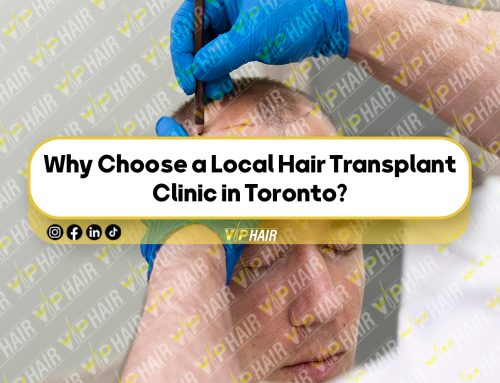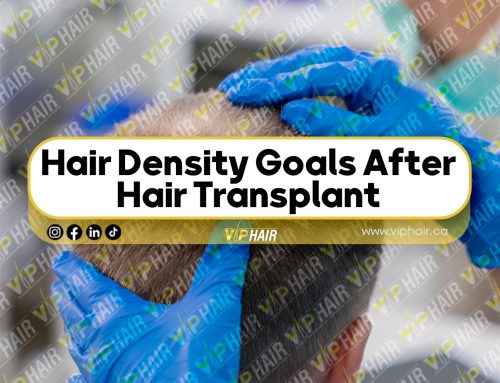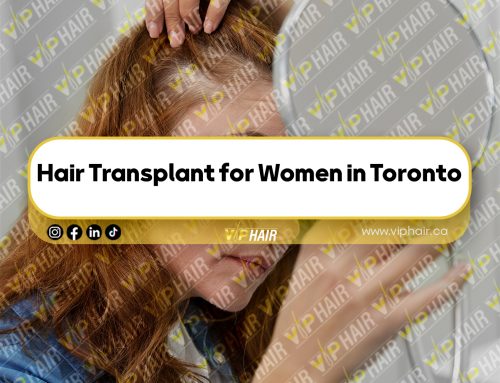Why a Free Consultation is the First Step to Confidence
Hair loss can affect anyone—men, women, and even younger people. For many, it’s not just about looks; it’s about self-confidence, personal identity, and how you feel in social or professional situations.
A Hair Transplant offers one of the most reliable and permanent solutions for restoring natural hair growth. But jumping straight into surgery without a thorough evaluation is like building a house without a blueprint.
That’s why free hair transplant consultations in Toronto are such a valuable service. They give you access to a hair restoration expert, allow you to understand the exact state of your scalp, and help you decide whether a transplant—or another treatment—is right for you.
In this guide, we’ll go deep into what happens during a consultation, what to expect, how to prepare, and why it’s so important before making a decision.
What is a Hair Transplant?
A Hair Transplant is a medical procedure that permanently relocates healthy hair follicles from a donor site (usually the back or sides of your scalp) to thinning or bald areas. The transplanted hairs grow naturally for life because they are resistant to the hormone DHT, which causes pattern baldness.
Two Popular Methods in Toronto Clinics
-
FUT (Follicular Unit Transplantation)
-
A strip of skin is removed from the back of the scalp.
-
The follicles are separated and implanted into thinning areas.
-
Leaves a linear scar but allows for high graft numbers in one session.
-
Recovery: 10–14 days before stitches are removed.
-
-
FUE (Follicular Unit Extraction)
-
Individual follicles are extracted one by one.
-
No linear scar—only tiny dot scars that fade over time.
-
Less invasive and quicker healing (3–7 days).
-
Popular for patients who wear short haircuts.
-
Why Free Consultations Are a Game-Changer in Toronto
Toronto’s hair restoration industry is booming. Clinics compete not just on price, but on technology, surgeon expertise, and patient experience. Offering a free consultation helps clinics showcase their services while giving you a risk-free opportunity to:
-
Compare techniques between clinics
-
See genuine before-and-after case studies
-
Understand costs without commitment
-
Ask personal questions directly to the surgeon
The Step-by-Step Consultation Experience
Here’s what you can expect during a free hair transplant consultation in a reputable Toronto clinic:
1. Warm Welcome and Medical Intake
When you arrive, you’ll be asked to complete a short questionnaire covering:
-
Medical history (including any scalp conditions)
-
Current medications
-
Family history of hair loss
-
Lifestyle factors like diet, stress, and smoking habits
This helps the clinic determine if you’re a suitable candidate.
2. Scalp and Hair Assessment
The specialist will closely examine your scalp to:
-
Identify your hair loss pattern (e.g., Norwood scale for men, Ludwig scale for women)
-
Assess donor hair quality and density
-
Look for signs of scarring, inflammation, or scalp disease
3. Digital Imaging and Microscopic Analysis
Top Toronto clinics use:
-
Trichoscopes to magnify hair follicles
-
Hair density meters to count follicles per square centimeter
-
High-resolution photography to track progress over time
4. Reviewing Your Hair Loss History
You’ll discuss:
-
When your hair loss started
-
How quickly it’s progressed
-
Any treatments you’ve tried (minoxidil, finasteride, PRP, etc.)
-
Your lifestyle and stress levels
5. Setting Your Goals
This is your time to be specific:
-
Do you want to restore your hairline?
-
Add density to the crown?
-
Fill in temple areas?
Hair Loss Types Covered in Consultations
-
Androgenetic Alopecia – The most common type, caused by genetics and hormones
-
Alopecia Areata – Autoimmune hair loss in patches
-
Telogen Effluvium – Temporary shedding due to stress or illness
-
Traction Alopecia – From tight hairstyles
-
Scarring Alopecia – Due to injury or medical conditions
Determining Candidacy
A good hair transplant candidate:
-
Has stable hair loss
-
Has a healthy donor area
-
Understands realistic expectations
-
Is in overall good health
Unsuitable candidates may be advised to try non-surgical treatments first.
FUE vs FUT: Which Will They Recommend?
Your surgeon will recommend a method based on:
-
Hair length preference (short hair works best with FUE)
-
Number of grafts needed (FUT can deliver more in one session)
-
Lifestyle (athletes may prefer faster recovery with FUE)
Designing Your Hairline
During your consultation, the surgeon may sketch or digitally design your new hairline, considering:
-
Age and natural recession patterns
-
Facial symmetry
-
Long-term hair loss progression
Risks and Side Effects Discussed
The surgeon will be upfront about:
-
Temporary redness, swelling, or scabbing
-
Rare risks like infection or poor graft survival
-
The possibility of shock loss in surrounding hairs
Cost and Financing
Typical Toronto pricing:
-
$3–$6 CAD per graft
-
Small sessions: $4,000–$6,000 CAD
-
Large sessions: $10,000–$15,000 CAD
Many clinics offer 0% financing for up to 12 months.
Patient Stories – Real Toronto Results
A good consultation includes real-life examples. You might see:
-
Case 1: A 35-year-old man with Norwood stage 4 hair loss, restored with 3,200 FUE grafts
-
Case 2: A 42-year-old woman with thinning hairline, improved density using 2,000 FUT grafts
-
Case 3: A young professional using PRP before transplant to strengthen existing hair
Preparing for the Day of the Transplant
Your consultation will include pre-op tips:
-
Stop smoking at least 2 weeks before
-
Avoid alcohol 48 hours before surgery
-
Stop blood thinners (with doctor approval)
-
Wash your hair thoroughly before the procedure
Recovery Timeline – What They’ll Explain
-
Day 1–3: Mild swelling, rest recommended
-
Day 4–7: Scabs form and start to fall off
-
Week 2: Most redness subsides
-
Month 1–3: Temporary shedding (shock loss)
-
Month 4–6: New hair growth begins
-
Month 12–18: Final results
Questions You Should Ask
-
How many years have you been performing hair transplants?
-
What technology do you use?
-
How do you handle complications?
-
What is your graft survival rate?
-
Can I meet previous patients?
Post-Consultation: Making the Decision
After your free consultation:
-
You may book a surgery date
-
Take time to compare clinics
-
Ask for a written treatment plan and cost breakdown
Common Myths Debunked
-
Myth: Hair transplants look fake
Fact: Modern techniques create completely natural results. -
Myth: They’re only for men
Fact: Many women in Toronto benefit from hair transplants. -
Myth: Recovery is extremely painful
Fact: Discomfort is mild and manageable.
Final Thoughts
A free Hair Transplant consultation in Toronto isn’t just a formality—it’s your first real step toward restoring your confidence and appearance. You’ll walk away with a personalized plan, realistic expectations, and the knowledge to make an informed choice.






Leave A Comment